Neuroscience
-
 Neuroscience
NeuroscienceHandwriting may boost brain connections more than typing does
Students asked to write words showed greater connectivity across the brain than when they typed them, suggesting writing may be a better boost for memory.
-
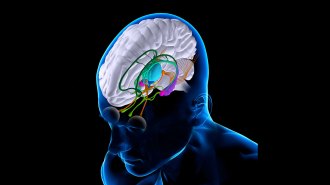 Neuroscience
NeuroscienceElectrical brain implants may help patients with severe brain injuries
After deep brain stimulation, five patients with severe brain injuries improved their scores on a test of cognitive function.
-
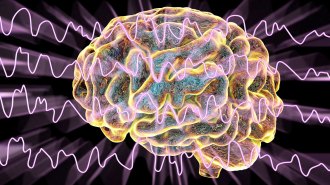 Health & Medicine
Health & MedicineA brain-monitoring device may one day take the guesswork out of anesthesia
The automated device pairing brain activity and dosing kept two macaques sedated for 125 minutes, raising hopes of precision anesthesia for people.
-
 Neuroscience
NeuroscienceBrain scans give clues to how teens handle pandemic stress
A study that followed hundreds of teenagers during the COVID-19 pandemic may explain why some people succumb to stress while others are more resilient.
-
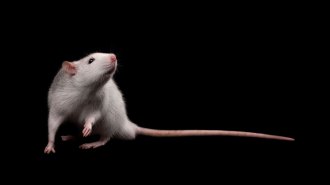 Neuroscience
NeuroscienceIn a Jedi-like feat, rats can move a digital object using just their brain
In a new study, rats could imagine their way through a 3-D virtual world, hinting at how brains can think about places that they’re not physically in.
-
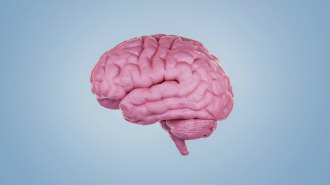 Neuroscience
NeuroscienceWhat a look at more than 3,000 kinds of cells in the human brain tells us
A wide-reaching look at the cells that build the brain, detailed in 21 studies, showcases the brain’s cellular diversity and clues about how it works.
-
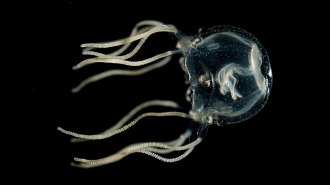 Animals
AnimalsThese brainless jellyfish use their eyes and bundles of nerves to learn
No brain? No problem for Caribbean box jellyfish. Their seemingly simple nervous systems can learn to avoid obstacles on sight, a study suggests.
-
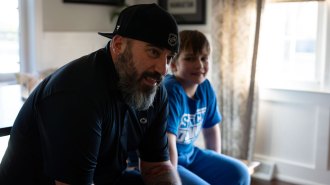 Health & Medicine
Health & MedicineHow brain implants are treating depression
This six-part series follows people whose lives have been changed by an experimental treatment called deep brain stimulation.
-
 Neuroscience
NeuroscienceToday’s depression treatments don’t help everyone
In the second story in the series, deep brain stimulation is a last resort for some people with depression.
-
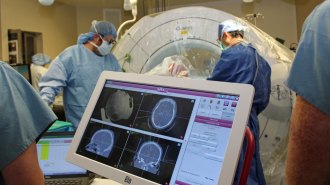 Health & Medicine
Health & MedicineThe science behind deep brain stimulation for depression
The third part of the series explores the promising brain areas to target for deep brain stimulation for depression.
-
 Neuroscience
NeuroscienceWhat’s it like to live with deep brain stimulation for depression?
The fourth article in the series explores the physical and emotional challenges of experimental brain implants for depression.
-
 Health & Medicine
Health & MedicineThere’s a stigma around brain implants and other depression treatments
The fifth article in the series asks why people are so uncomfortable with changing the brain.